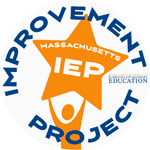League School Selected to Assist with Individual Education Program (IEP) Improvement Project

The Department of Elementary and Secondary Education (DESE) selected the League School to assist them with their Individual Education Program (IEP) Improvement Project. After a rigorous application process, the agency selected the League School as one of three private schools, and the only school focused on the autism community, to help overhaul the IEP process. The goal of the initiative is to improve outcomes for students with disabilities.
We will be testing and providing feedback on the program’s three components:
- The IEP development process
- The IEP form
- A new unified and user-friendly online system

“We have a stake in the IEP process, and it’s a privilege to be selected to advocate for special education students across the state,” said Chief Operating Officer, Cheryl White. “The school and our students’ parents will have an important role to play in revising the IEP process.” Through the League School’s Parent Advisory Committee, we will be eliciting feedback as the project moves forward. Assistant Director of Education, Bill Mulcahy, will lead this effort.
The school’s educational consultant, Dr. Margaret Reed, spearheads this important initiative. She will be working with the administration, teachers, and clinical staff. Margaret has worked on other League School projects, including curriculum development and interim stints as school principal and program director. She is a retired special education administrator and is an IEP consultant. “The current IEP program is compliance-heavy and doesn’t fully engage parents,” said Margaret. “The IEP Improvement Project seeks to include parents, guardians, and family members in the process. They’re an invaluable resource, and it’s important that the IEP process is welcoming and understandable.”
Nineteen school districts and 34 schools are participating in the project. “The fact that the state chose the League School to participate is a reflection of the school’s quality education reputation,” said Margaret. “We will be collaborating with school districts to field test form, process, and the technology platform enhancements as they’re developed.”
“It’s rewarding to take part in enhancing the IEP process and to get feedback from a variety of stakeholders,” said Cheryl. “We look forward to serving as an IEP implementation prototype for other special education schools.”
